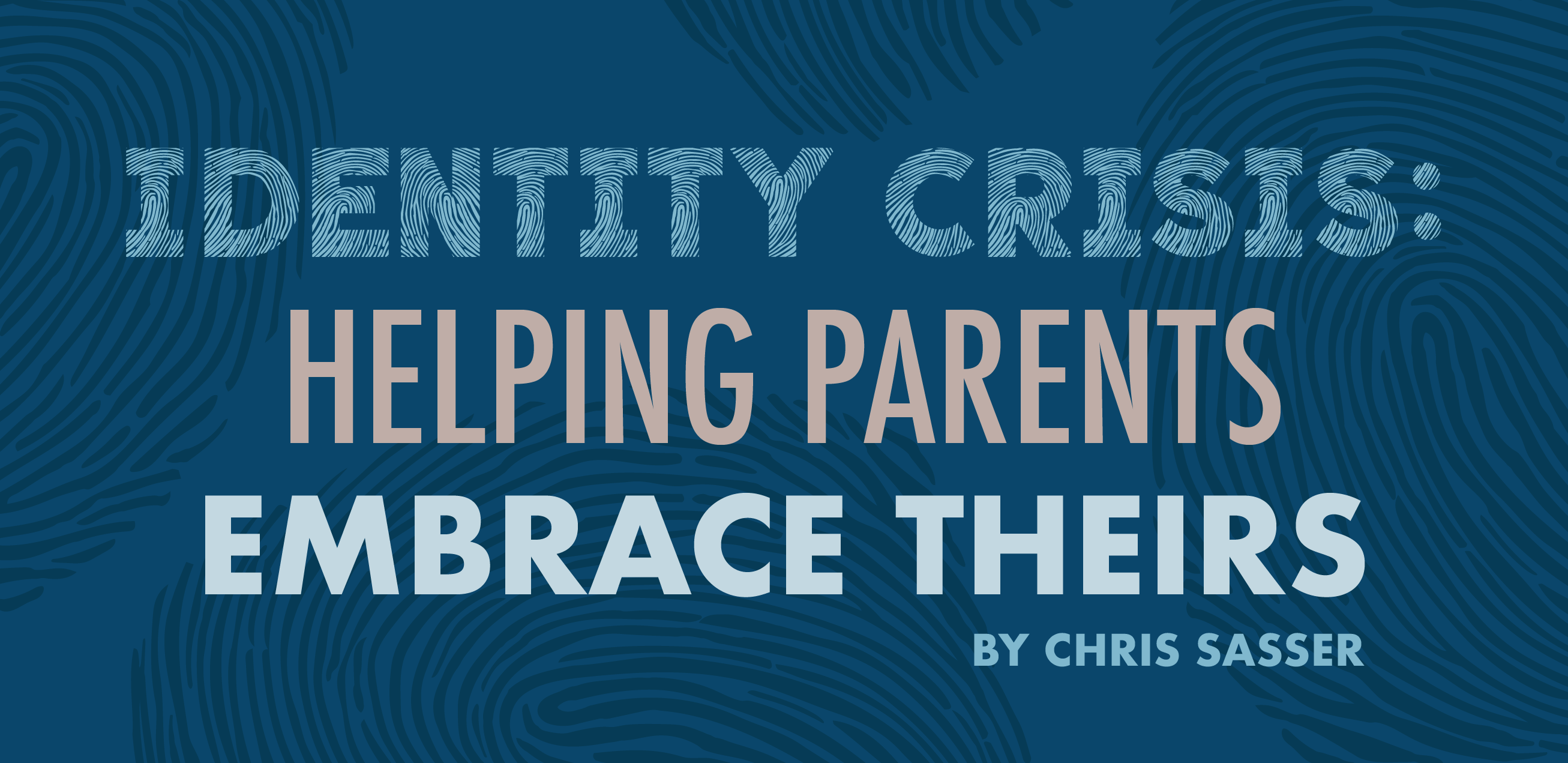Identity Crisis: Helping Parents Embrace Theirs
by Chris Sasser
As I sat across the room from this couple, I couldn’t help but be a little sad. The wife had reached out to our church looking for some parenting help and advice, and their request had come to me. Before our meeting, she and I talked on the phone so I could get the lay of the land and learn a little more about their situation. In that conversation, I learned that it wasn’t just the parenting help they needed, but their 19-year marriage was in some trouble, and there was a lot to talk about there. They struggled with communication, trust, and being on the same page on a lot of things. When I met her husband, and we talked briefly before our meeting, I could honestly see where some of the issues started.
Several times in the last few weeks, I have been in groups of parents or in one-on-one conversations like this one, where the main issue wasn’t really the one that we started talking about. Sure, this couple needed some better communication tools and perhaps to listen better. They needed to focus on the relationships they have with their kids more than the way they were pushing their kids to perform and achieve. What they really need, more than tips and tricks is to look inside and face something that’s at the core of who all we are … their identity.
I run into so many people (and parents) today who struggle with embracing a true identity in Christ that can lead them and sustain the weight of their lives. Things are tough, and we all have a lot to deal with. We get beat up, and we’re exhausted. We feel inadequate and like we’re not enough. We lean on things that will break over time, and we fail to stand on the only foundation that will never break: Jesus.
If you are a ministry leader, you know the identity struggles that our kids and teens are facing today. There is a lot written about how we can talk about identity and encourage adolescents in healthy ways. But what about helping the people we know as the primary spiritual leaders in their lives grasp their own identity? What about helping parents believe they are a child of God so they can point their kids and teens to a savior that is real and makes a difference in family life? Sure, we need to be talking about identity with the teens in our church. But we cannot neglect those who have the strongest influence on them and will be with them in some way for the rest of their lives.
Give parents opportunities to talk about how they are developing their identity in Christ. This may be in small groups, Sunday school, or other gatherings. Do your best to create environments where parents feel comfortable sharing about what is really going on in their hearts and minds, and they have the opportunity to authentically grow in their faith.
Give parents tools to develop their identity in Christ on their own. Find books, articles, and other resources that will help parents evaluate where they are and how they can grow and send them to parents. Often, deep down, people do want to grow and develop; they just don’t know where to look to find the tools they need to move in the direction they want to go. Do the work for them and provide resources that are actually helpful.
Help parents understand how important their identity is when it comes to helping their children develop their identity in Christ. Parents often underestimate the role their faith plays in the identity development of their kids. They can fall into the trap of sending their teenagers to church to get “fixed.” Family ministry pastor and guru Chap Clark said, “Parents have sub-contracted the spiritual lives of their kids to the church.” Don’t let them do that! Help parents believe that they are the primary spiritual leaders for their kids and teens. They need to understand that living a life of faith and embracing an identity in Christ themselves is the best way for their teenagers to do the same.
Give parents practical ideas on how to live into their identity in Christ. Even when they feel like they are authentically following Jesus and trying to live for Him, parents can still feel awkward and not know what to do to live out their identity in front of their children. They don’t want to be weird and push their teenagers away from wanting to live for Christ. Help parents identify ways to make talking about faith and living it out a normal and natural part of life at home. Parents really might need help brainstorming ways they can do this that fits with their personality and their family.
When it comes to identity development, we are all on a journey. We all need help, and parents are no different. Take the time and make the effort to not just point the teens in your church to an identity in Christ but lead their parents there as well. If you do, the families in your church will be much more likely to develop a faith that will be real and impact the lives they live every day.

